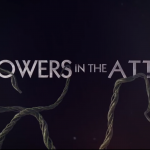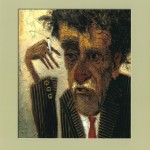Recently I have been in a few different bookstores with display signs proclaiming, “If you loved The Hunger Games, try this!” Beneath which are stacks of Koushun Takami’s novel Battle Royale.
A Japanese novel first translated into English about ten years ago, then retranslated in 2009, Battle Royale is something of a cult novel. I don’t know if it will use The Hunger Games to piggyback into the mainstream, but it’s already well-known enough that there are plenty of blog and forum posts claiming that Suzanne Collins ripped it off.
While that’s a debate I don’t really care to explore, the similarities between the books are striking. Battle Royale posits a totalitarian Republic of Greater East Asia, whose government annually kidnaps a class of middle schoolers, puts them in an arena with an uneven distribution of supplies and weapons, and forces the children to kill each other until there is only one left alive.
There are significant differences, as well. Unlike the Hunger Games of Collins’ books, the battle here is done in secret, with only government agents watching. Battle Royale is told in a third-person narrative voice, and it manages to invest each of its forty characters with at least the amount of life needed to make their deaths meaningful. It is an extremely violent novel—it makes the violence in The Hunger Games look somewhat tame—but it strikes me that if violence ever has a purpose in fiction, it certainly does here. The violence is not glorified, it is simply shown, as if the author is saying, “This is what we mean when we talk flippantly about war, murder, etc.” At the same time, the violence is used to show the depravity with which human beings—even children—will behave, if given permission. Like its literary ancestor Lord of the Flies, this novel could be read as an essay on original sin.
Like Lord of the Flies and The Hunger Games too, Battle Royale could be read as an indictment. I don’t know enough about Japanese culture or recent history to pick up on any subtle political agendas that might be there, but Takami’s and Collins’s books are both indictments of the complacency necessary to create a culture in which children are regularly murdered and nothing is done to stop it. Both books seems to me to ask the question, How close is this to happening? And to answer, closer than you think.
Is Battle Royale worth reading? I am loath to recommend a book based on its last line, but the last line of Battle Royale is one of the most striking I have ever read. It is this ending that lets the book avoid the accusation of voyeurism and acts in a similar way to the psychologist who says, “Every person in a dream is you.” Battle Royale is an indictment of sin, on a societal level and a personal level. As such, it is a book I think Christians would do well to read and carefully consider.











